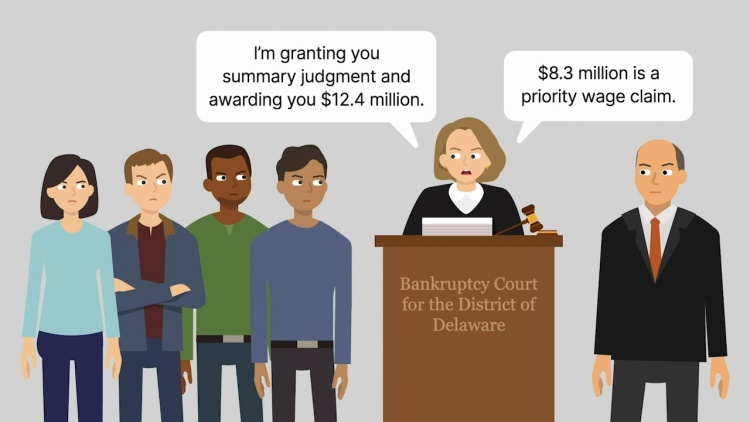Czyzewski v. Jevic Holding Corp.
United States Supreme Court
137 S. Ct. 973 (2017)
- Written by Abby Roughton, JD
Facts
Sun Capital Partners acquired Jevic Transportation Corporation (debtor) in a leveraged buyout with money borrowed from CIT Group. Two years later, Jevic filed for chapter 11 bankruptcy. Casimir Czyzewski and other former Jevic truck drivers (creditors) sued Jevic and Sun in bankruptcy court, asserting that Jevic terminated them without appropriate notice in violation of a federal statute. The bankruptcy court granted summary judgment for the drivers against Jevic and awarded them roughly $12.4 million, of which $8.3 million was considered a priority wage claim under the Bankruptcy Code. In a separate action, a committee of Jevic’s unsecured creditors brought a fraudulent-conveyance action against Sun and CIT. The parties in that action eventually reached a settlement agreement. The agreement dismissed Jevic’s chapter 11 case and provided, among other things, that Jevic’s remaining assets would be used to pay general unsecured creditors’ claims on a pro rata basis but would not be used to pay the drivers’ higher-priority $8.3 million wage claim. The drivers objected to the settlement because it departed from the Bankruptcy Code’s ordinary distribution-priority rules. The bankruptcy court acknowledged the departure but concluded that it could still approve the settlement. The Third Circuit affirmed, and the United States Supreme Court granted certiorari.
Rule of Law
Issue
Holding and Reasoning (Breyer, J.)
What to do next…
Here's why 907,000 law students have relied on our case briefs:
- Written by law professors and practitioners, not other law students. 47,100 briefs, keyed to 996 casebooks. Top-notch customer support.
- The right amount of information, includes the facts, issues, rule of law, holding and reasoning, and any concurrences and dissents.
- Access in your classes, works on your mobile and tablet. Massive library of related video lessons and high quality multiple-choice questions.
- Easy to use, uniform format for every case brief. Written in plain English, not in legalese. Our briefs summarize and simplify; they don’t just repeat the court’s language.





